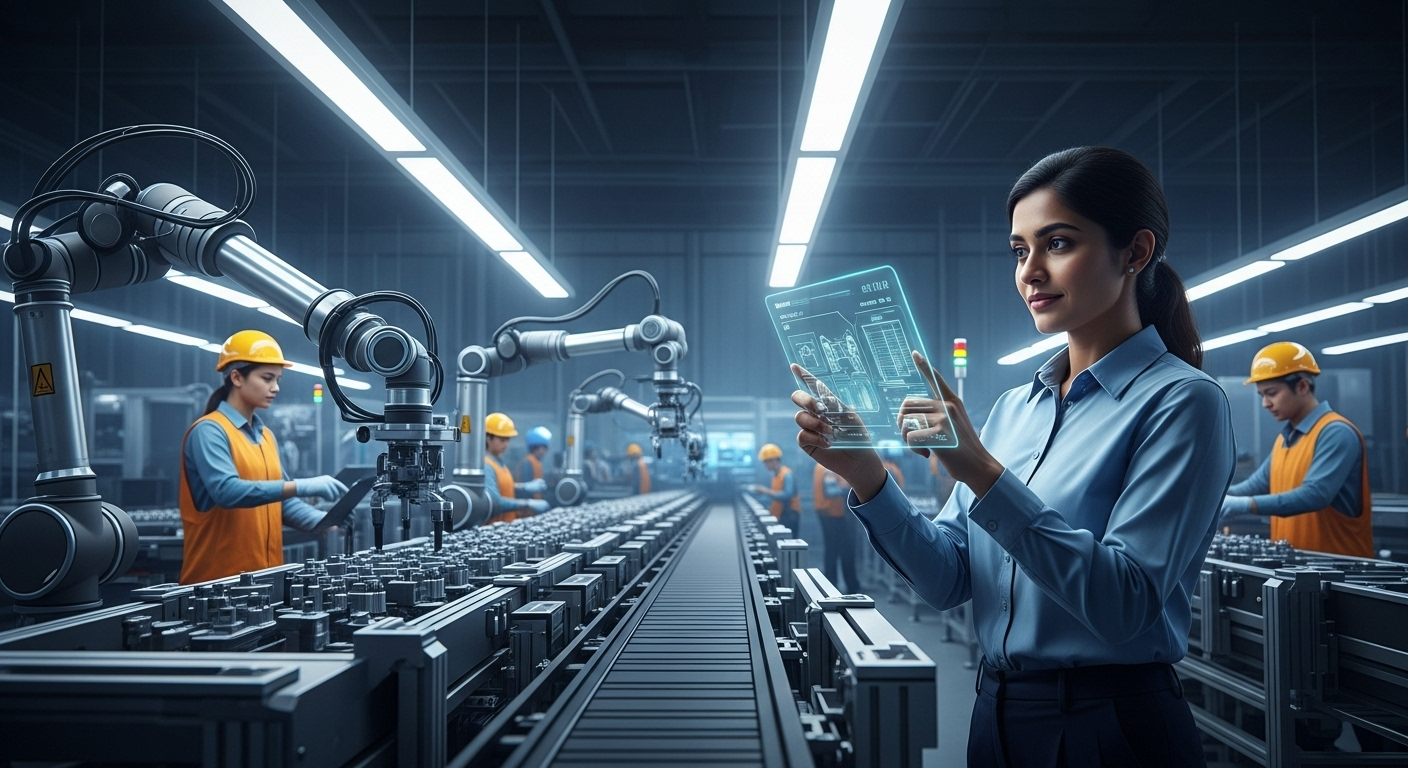Manufacturing Employment: Evolution Through Automation and Trends
Manufacturing employment continues to transform as technological advances reshape traditional roles across global production facilities. Modern factory positions now require different skill sets while regional manufacturing patterns shift in response to automation, economic factors, and changing consumer demands.

Manufacturing Employment: Evolution Through Automation and Trends
The landscape of manufacturing employment has undergone significant transformation over the past decade. While traditional assembly line positions remain important, the integration of advanced technologies has created new opportunities and challenges for workers across the industrial sector. Understanding these changes helps both current and prospective factory employees navigate this evolving field.
How Automation is Changing Factory Roles
Automation has fundamentally altered the nature of factory work, though not always in the ways many predicted. Rather than simply eliminating jobs, technology has shifted the focus toward roles requiring technical oversight, maintenance, and quality control. Modern factory workers increasingly find themselves operating sophisticated machinery, monitoring automated systems, and troubleshooting complex production processes.
Robotic systems now handle many repetitive tasks, freeing human workers to focus on problem-solving, equipment calibration, and process optimization. This shift has created demand for employees who can interpret data from sensors and automated systems, making analytical thinking and technical literacy increasingly valuable. Machine operators today often work alongside collaborative robots, requiring new forms of human-machine interaction skills.
The transition has also emphasized the importance of continuous learning. Factory workers must adapt to new technologies as they are implemented, often requiring ongoing training in software systems, safety protocols, and equipment operation. This evolution has made factory work more intellectually demanding while potentially offering greater job satisfaction through varied responsibilities.
Regional Trends in Global Manufacturing
Manufacturing patterns worldwide reflect complex economic and political factors that influence where factories locate and what types of jobs they create. Developed nations have seen a shift toward high-tech manufacturing, focusing on precision instruments, pharmaceuticals, and advanced materials rather than basic consumer goods production.
Emerging economies continue to attract labor-intensive manufacturing, though even these regions are increasingly adopting automation to remain competitive. Countries like Vietnam, Bangladesh, and Mexico have become major manufacturing hubs, offering employment opportunities in textiles, electronics assembly, and automotive components.
Nearshoring trends have brought some manufacturing closer to consumer markets, particularly in North America where companies seek to reduce supply chain risks. This has created new factory jobs in regions that had previously lost manufacturing employment, though these positions often require higher skill levels than their predecessors.
The renewable energy sector has emerged as a significant driver of manufacturing employment, with solar panel production, wind turbine manufacturing, and battery assembly creating new categories of factory jobs. These industries often combine traditional manufacturing skills with specialized knowledge of clean energy technologies.
Skills That Matter in Modern Factory Work
Today’s factory positions prioritize a combination of technical competency and soft skills that enable workers to thrive in technology-enhanced environments. Computer literacy has become fundamental, as most modern manufacturing processes involve digital interfaces, data collection systems, and computerized quality control measures.
Problem-solving abilities rank among the most valued skills, as automated systems require human intervention when irregularities occur. Workers must quickly diagnose issues, implement solutions, and communicate effectively with team members and supervisors. This analytical approach to troubleshooting distinguishes modern factory work from purely manual labor.
Safety awareness remains paramount, though it now encompasses cybersecurity considerations alongside traditional workplace hazards. Understanding how to safely interact with automated systems, recognize potential security threats, and follow updated safety protocols has become essential for all factory employees.
Communication skills have gained importance as factory work becomes more collaborative. Modern manufacturing often involves cross-functional teams, requiring workers to share information clearly, participate in continuous improvement initiatives, and contribute to process optimization discussions. The ability to document procedures and report findings accurately supports overall operational efficiency.
| Skill Category | Traditional Importance | Modern Importance | Key Applications |
|---|---|---|---|
| Technical Literacy | Low | High | Operating computerized equipment, data interpretation |
| Physical Dexterity | High | Moderate | Precision assembly, equipment maintenance |
| Problem-Solving | Moderate | High | System troubleshooting, process optimization |
| Communication | Low | High | Team collaboration, reporting, training |
| Safety Awareness | High | High | Traditional hazards plus cybersecurity protocols |
Adaptability represents perhaps the most crucial skill for long-term success in factory work. As technologies continue evolving and market demands shift, workers who can learn new systems, adjust to changing procedures, and embrace innovation will find the most opportunities for career advancement.
The manufacturing sector’s evolution reflects broader economic trends while creating new pathways for employment. While some traditional roles have disappeared, others have emerged that offer potentially greater job security through the specialized knowledge they require. Success in modern factory work depends on embracing technological change while maintaining the attention to detail and work ethic that have always characterized quality manufacturing employment.
Understanding these trends helps individuals make informed decisions about pursuing manufacturing careers and developing the skills most relevant to future opportunities in this dynamic sector.




